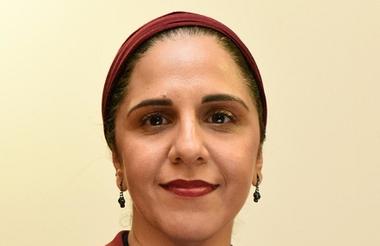“Traditional” philanthropy in the UK needs to evolve, BBC Children in Need’s director of impact and influence told an event in London yesterday.
Fozia Irfan has been involved in researching philanthropy as a tool for social change for the last decade and recently spent time in the US visiting various charities and foundations on a Churchill Fellowship.
Speaking at the Charity Law Association annual conference, Irfan said that observing the workings of philanthropy in the US made her realise that the UK sector “needs to evolve” to better serve charities and communities.
Philanthropy sector has undergone ‘a lot of scrutiny’
Irfan said: “Everything that we do as charities, as funders, has such an impact on communities that we serve.
“Charities and funders will say that we’re set up for public benefit with their public good, but are we actually achieving the change that we want to see?”
Citing the cost-of-living crisis, political volatility, long-term impact of the Covid-19 pandemic, and the mental health crisis, Irfan described the climate for communities, charities, and funders as “increasingly difficult and challenging”.
“That must force us to ask questions about our role in responding to those crises,” she said.
“In the last few years, we’ve had a lot of scrutiny as to what philanthropy does exactly, and whether or not it has validity or credibility, and whether or not those funds are being used for the right purpose.”
Social changes now coming from ‘grassroots level’, not charities
Irfan said: “One of the things that I really focused on over the last six years is the failure of philanthropy and the failure of institutional charities.
“If you think about the big social movements of the last five years – Black Lives Matter, climate justice, Me Too – none of those movements were seeded by trusts and foundations, by philanthropy or by institutional charities.
“They were all catalysed by individuals, by people working in the community at a grassroots level, who knew how to use social media platforms, who knew how to connect with other groups and how to build a movement.
According to Irfan, this shift in the way societal change is catalysed raises questions about whether philanthropy in the UK now fulfills the purpose for which it was initially set up.
Involving local communities more
Irfan said that philanthropy should strive to be a “transformative catalyst for social change and for public benefit”.
“Philanthropy is not a scientific, objective, neutral act,” she said.
Instead of just addressing the symptoms of a social problem, Irfan said charities and funders need to think more laterally about the root causes of these problems and address them first.
“Really looking at the causes is an integral part of what we need to do in terms of our philanthropy and our funding and social justice,” Irfan said.
“It also means centring the communities that we work with in philanthropy and grantmaking.
“We often have boards who are very distant from the actual communities, who you’re trying to work with. Expertise in relation to social change at a local community and grassroots level lies within those communities.”
Better collaboration
There is also a need for charities and foundations to collaborate more effectively, Irfan said.
“Funders and charities need to start building movements, and that means that we all need to work together in a much more coordinated and cohesive way,” Irfan said.
“There is no single issue at the moment that one funder or one charity can solve by themselves. We need to face the fact that cannot save the UK.
“There is instead a need for charities to work together at a grassroots level, as well as funders and charities who work to convene to fund research, and to lobby and influence policy.”
Related Articles












